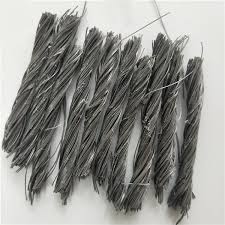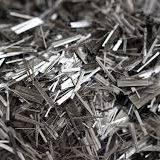Professional solutions on concrete addtives, Concrete Foaming Agent, Superplasticizer, CLC Blocks Additives, and foaming machine
PRODUCT PARAMETERS
Description
Introduction of Basalt Fiber
Basalt fiber is based on continuous basalt fiber and undergoes special surface treatment to form chopped fibers with good bonding properties with asphalt or cement concrete. It is a highly competitive alternative to lignin fiber, polyester fiber and other additives for asphalt concrete. The product can significantly improve the high-temperature stability, low-temperature crack resistance, water damage resistance and fatigue resistance of asphalt concrete, and can greatly extend the service life of asphalt concrete. As a secondary reinforcement material, basalt fiber can significantly improve the toughness, bending and tensile resistance, and impermeability of concrete.
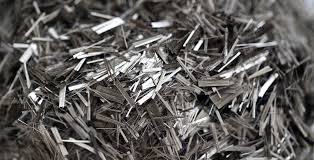
Features of Basalt Fiber
1. Improve asphalt usage efficiency and reduce oil spillage.
2. The dynamic stability is increased, and the temperature resistance to rutting is improved by more than 30%.
3. Reduce the occurrence of temperature shrinkage cracks and improve the low-temperature crack resistance of the road surface by more than 40%.
4. Improve the road’s ability to resist water damage.
5. Improve the fatigue resistance of the road surface by more than 2 times and extend the service life of the road surface.
6. Improve the crack resistance of cement concrete/mortar.
7. Improve the impermeability of cement concrete/mortar.
8. Improve the durability of cement concrete/mortar.
9. Improve the production efficiency and economic benefits of the project.
Parameters of Basalt Fiber
| Tensile strength a/MPa | ≥1200 | Density g/m3 | 2.6-2.8 |
| Elastic modulus b/GPa | ≥75 | Alkali resistance/% | ≥75 |
| Elongation at break c/% | ≤3.1 | Water content/% | ≤0.2 |
Application of Basalt Fiber
1. Suitable for various asphalt concrete pavements such as dense-graded asphalt concrete (AC), asphalt mastic gravel mixture (SMA), open-graded asphalt concrete (OGFC), fiber seal, etc.
2. Bridges, tunnels, ballastless tracks, airport runways, etc.
3. Dams, canals, water works and other concrete projects. Cross-sea bridges, ports and terminals, etc.
4. Highways, energy projects, etc.
5.UHPC high performance concrete, etc.
How to Use Basalt Fiber
Recommended dosage: 2-5 kg/m.
Mixing process: add aggregate → add fiber, add cement, add water → stir → add additional water until all fibers are dispersed.

Company Profile
Cabr-Concrete is the global leader in Low-Density Cellular Concrete (LDCC), Celluar Light Concrete (CLC), and advanced engineered foam solutions. Known globally for its commitment to research, innovation, and applied expertise, we have been providing engineered foam solutions since the early 2012’s.
We can supply Concrete Fiber over the world. The company has a professional technical department and quality supervision department, a well-equipped laboratory, and equipped with advanced testing equipment and after-sales customer service center.Send us an email or click on the needed products to send an inquiry.
If you want to know more about Basalt Fiber, please feel free and contact us: sales@cabr-concrete.com

Packaging and Storage of Basalt Fiber
Packaging: inner plastic bag 1kg-5kg per small package, outer woven bag or carton 10kg-25kg per package, 500kg per pallet. It can also be produced and packaged according to user requirements.
Payment
T/T, Western Union, Paypal, Credit Card etc.
Shipment
By air, by sea, by express, as customers request.
FAQs of Basalt Fiber
Q: Is basalt fiber safe to handle?
A: While basalt fiber is generally safe, it can cause skin irritation and eye irritation similar to glass fibers. Protective gear such as gloves, masks, and goggles should be worn during handling to minimize exposure.
Q: How does basalt fiber compare to fiberglass?
A: Both fibers are used in similar applications, but basalt fiber typically offers higher strength and better resistance to chemicals and heat compared to fiberglass. However, fiberglass is more widely used and established in the market.
Q: Can basalt fiber be recycled?
A: Yes, basalt fiber can be recycled, although the process is not as straightforward as recycling metals or plastics. Recycling methods are still being developed to make the process more efficient and cost-effective.
Q: Are there any limitations to using basalt fiber?
A: Despite its advantages, basalt fiber has some limitations:
- Limited Availability: Not as readily available as other fibers like fiberglass.
- Handling: Requires careful handling to avoid irritation.
- Production Complexity: Requires high-temperature processing equipment.
REQUEST A QUOTE
RELATED PRODUCTS
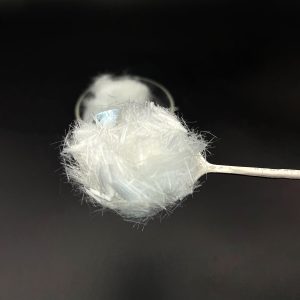
PP Series Polypropylene Crude Synthetic Fiber
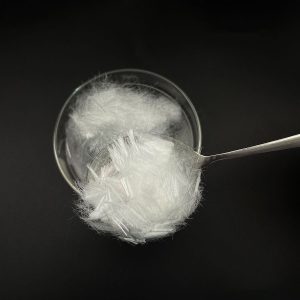
UHPC Special High Performance Polypropylene Synthetic Fiber
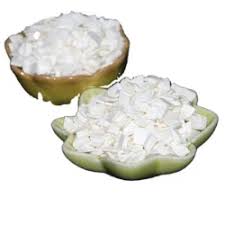
High Quality Lignin Fiber Organic Fiber for Concrete Use
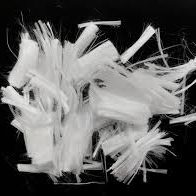
UHMWPE Fiber Ultra High Molecular Weight Polyethylene Fiber For Concrete Use
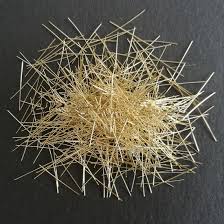
Copper-plated steel fibres
